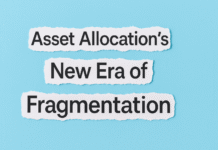According to Paul Tucker, a former governor of the Bank of England, U.K. financial authorities have not effectively addressed vulnerabilities and should now create a “comprehensive” new strategy.
Tucker said that the BoE’s efforts to address the “shadow banking” sector, which includes bond funds, private lenders, and cryptocurrency businesses, had been insufficient.
According to Tucker, authorities may eventually pay for the U.K. and other nations’ reluctance to handle shadow banking dangers, according to a Financial Times investigation.
According to him, there is frequently greater fragility there, making it simple for loosely regulated bond funds and cryptocurrencies that advertise themselves as “secure” locations to the bank to collapse.
He believes that the industry should instead focus more on a “wide” strategy that would require businesses that support safe investments to obtain liquidity insurance with the BoE, enabling them to immediately pay 100% of their short-term commitments. Without that insurance, businesses would not be able to portray themselves as secure.
NatWest and HSBC showed rising earnings, while Barclays and Lloyds saw a dip over the previous year.
The expenditures associated with the bank issuing securities in excess of the amount registered under its U.S. shelf registration as of the end of last year are said to be the cause of Barclays’ decrease. For the bank, there are a few regulatory issues as well.
The jump in share prices, according to HSBC, is a result of the company’s announcement that it will start paying quarterly dividends again in 2019.











